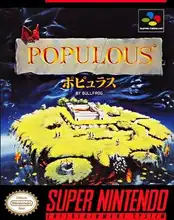Remember spending hours meticulously planning road layouts, setting ticket prices, or drafting the perfect fantasy football team? Long before complex 3D graphics and online multiplayer dominated the scene, a different kind of game captured our imaginations: managerial games. These were the titles that turned us into armchair architects, ruthless business magnates, and strategic masterminds, all from the comfort of our glowing CRT monitors.
For many of us who grew up with floppy disks and dial-up modems, these games weren't just entertainment; they were digital playgrounds that taught us about resource management, planning, and the sometimes-harsh realities of balancing a budget. They offered a unique blend of creative freedom and strategic challenge, letting us build worlds and empires one click at a time.
Why Did We Pour Hours Into Digital Management?
What was it about these simulation and management titles that kept us glued to the screen? It wasn't the action-packed sequences or the thrilling boss fights. It was the slow burn, the intricate systems, and the profound sense of ownership.
- The God Complex: Whether you were zoning residential areas in SimCity or placing rides in Theme Park, you held immense power over your little digital world. Your decisions had consequences, and seeing your creation flourish (or spectacularly fail) was incredibly compelling.
- Strategic Depth: These games often had hidden complexities. Understanding supply chains, managing staff happiness, reacting to unpredictable events – it required thinking several steps ahead, a satisfying mental workout.
- Rewarding Growth: Starting with a small plot of land or a struggling team and growing it into a thriving metropolis or a championship contender provided a tangible sense of achievement. Every successful quarter, every satisfied customer, every winning season felt earned.
- Endless Replayability: Unlike linear adventures, managerial games offered infinite possibilities. You could start a new game with a different strategy, aiming for a different outcome, ensuring countless hours of engagement.
Classic Managerial Games That Defined an Era
The retro landscape was rich with gems in this genre. While the term "managerial games" is broad, covering everything from city builders to sports sims, some titles stand out as foundational for the genre and evoke serious nostalgia.
Building Your Dream (or Nightmare) City
Perhaps the most iconic was the original SimCity series. Will Wright's masterpiece wasn't just a game; it felt like a living simulation. We learned about power grids, traffic flow, and the delicate balance between taxes and public services. Later iterations added more depth, but that first dive into zoning and watching your city grow from scratch was pure magic.
The Thrill of the Theme Park
Who could forget the chaotic fun of Theme Park? Hiring entertainers, setting the price of fries (and adding just enough salt), dealing with strikes, and trying to build a rollercoaster that didn't immediately crash – it was hilarious, stressful, and utterly addictive. RollerCoaster Tycoon later took this concept to incredible heights with its detailed park management and intricate ride design tools.
Mastering the Sports World
For the sports fanatics, Football Manager (and its predecessors like Championship Manager) was less a game and more a lifestyle choice. Spending hours scouting players, tweaking tactics, and navigating press conferences became a ritual. These games demanded deep knowledge and strategic foresight, often leading to triumphant wins or heartbreaking defeats.
Tycoons of Industry and Transport
Games like Transport Tycoon let you build sprawling logistics networks, connecting cities and industries with trains, trucks, planes, and boats. It was a complex economic puzzle that rewarded efficient planning and smart investments. Other "tycoon" games covered everything from railroads (Railroad Tycoon) to lemonade stands, proving you could manage just about anything.
More Than Just Fun: The Skills We Accidentally Learned
While we were busy trying to avoid bankrupting our digital empires, these games were subtly teaching us valuable skills. Competitors in the modern space even use game analogies for real-world management, and it's clear the foundation was laid in these older titles.
- Resource Allocation: Managing limited funds, materials, and staff was central to success.
- Problem Solving: Dealing with unexpected events, unhappy citizens, or competitor sabotage required quick thinking.
- Long-Term Planning: Building a sustainable city or a championship team wasn't an overnight task; it required foresight and patience.
- Data Analysis: Keeping an eye on charts, graphs, and statistics was crucial for making informed decisions (even if we didn't call it "data analysis" back then).
Reconnecting with Your Inner Manager Today
Feeling that nostalgic pull? The good news is that many of these classic managerial games are still accessible!
Sites like GOG.com (Good Old Games) offer DRM-free versions of many classics, often pre-configured to run on modern systems. For true retro authenticity, you can explore using emulators like DOSBox, which recreates the old MS-DOS environment, allowing you to run original floppy disk images or digital downloads. The Internet Archive also hosts many abandonware titles that can sometimes be played directly in your browser.
Diving back in might require a little setup, but the feeling of hearing those old MIDI tunes and seeing those familiar pixelated interfaces is well worth the effort.
The Lasting Legacy
The influence of these retro managerial games can be seen in modern simulation and strategy titles. The core loops of building, managing, and optimizing remain popular because they tap into that fundamental human desire to create order and achieve mastery. While graphics have evolved dramatically, the strategic heart of the genre beats strong, a testament to the brilliant designs of these early pioneers.
So, whether you're revisiting a classic or discovering one for the first time, take a moment to appreciate the legacy of managerial games – the pixelated boardrooms and digital city limits where so many of us learned the ropes of running things, one simulated day at a time.
FAQ About Managerial Games
Q: What are managerial games? A: Managerial games are a genre of video games where players take on the role of managing a system, organization, or entity, such as a city, theme park, sports team, or business, focusing on strategic planning, resource allocation, and decision-making.
Q: Are retro managerial games still playable on modern computers? A: Yes! Many classic managerial games are available on digital storefronts like GOG.com, which provide compatibility updates. You can also play original versions using emulators like DOSBox.
Q: Where can I find classic managerial games? A: Check out digital distribution platforms like GOG.com, explore emulation options with DOSBox, or look into resources like the Internet Archive for abandonware titles.
Q: What skills can you learn from playing managerial games? A: These games can help develop skills in resource management, strategic planning, problem-solving, budgeting, and understanding complex systems, often in a fun and engaging way.



